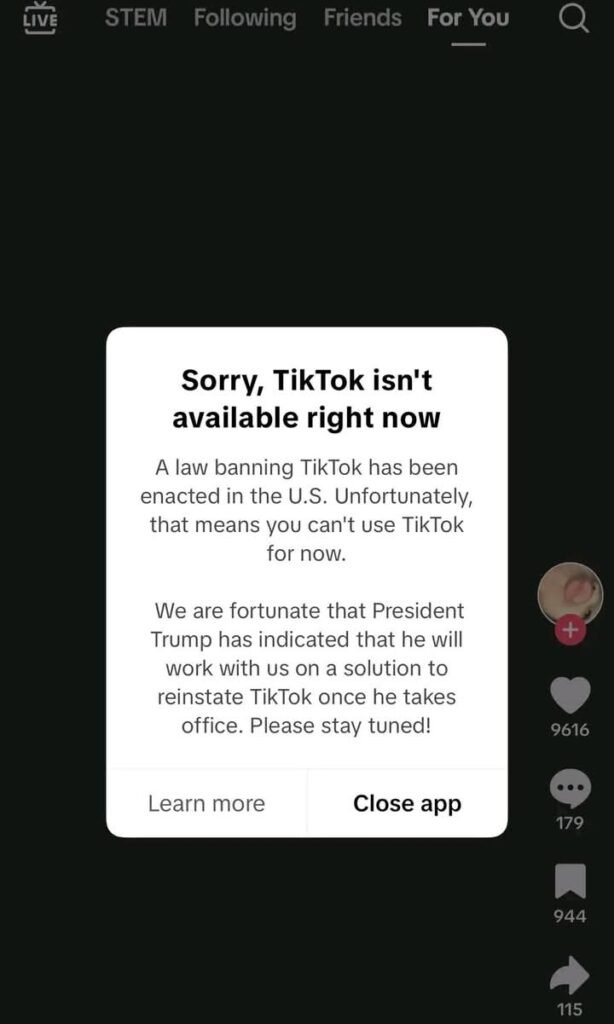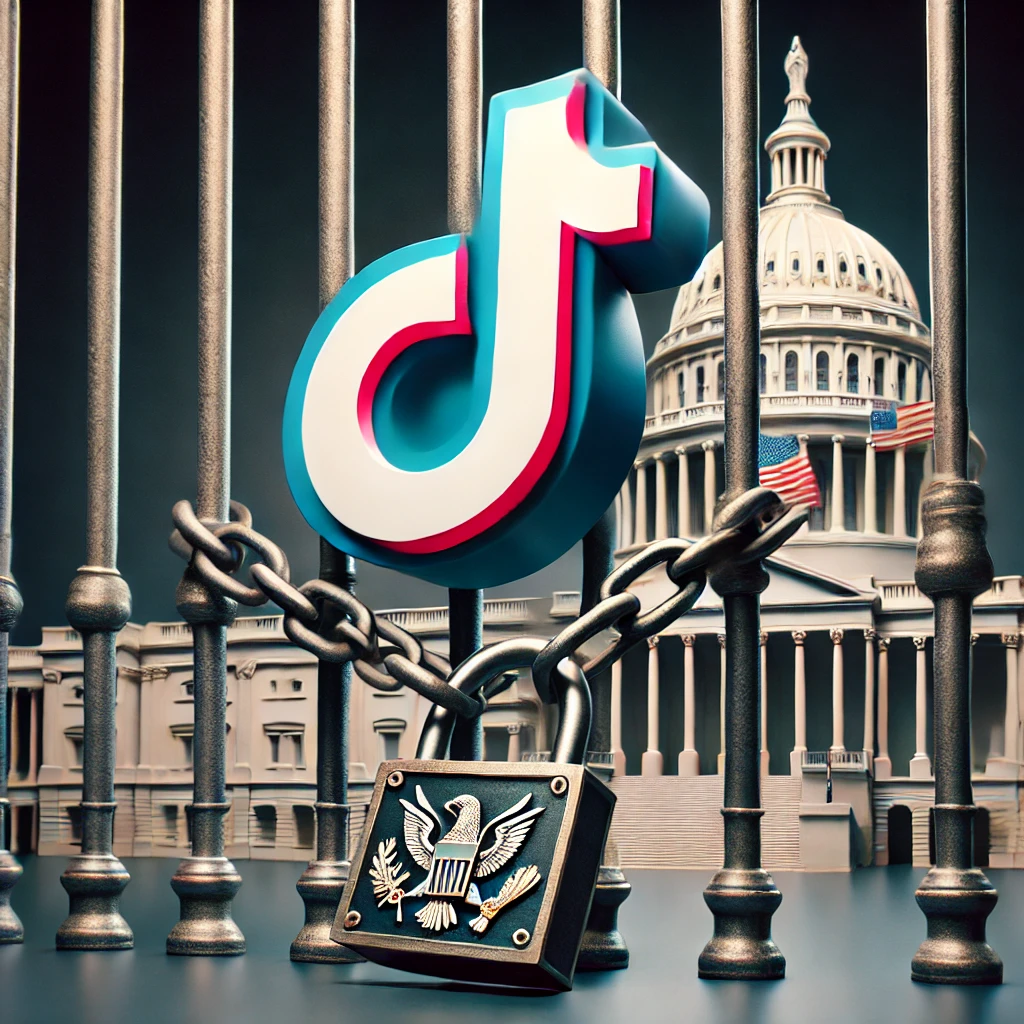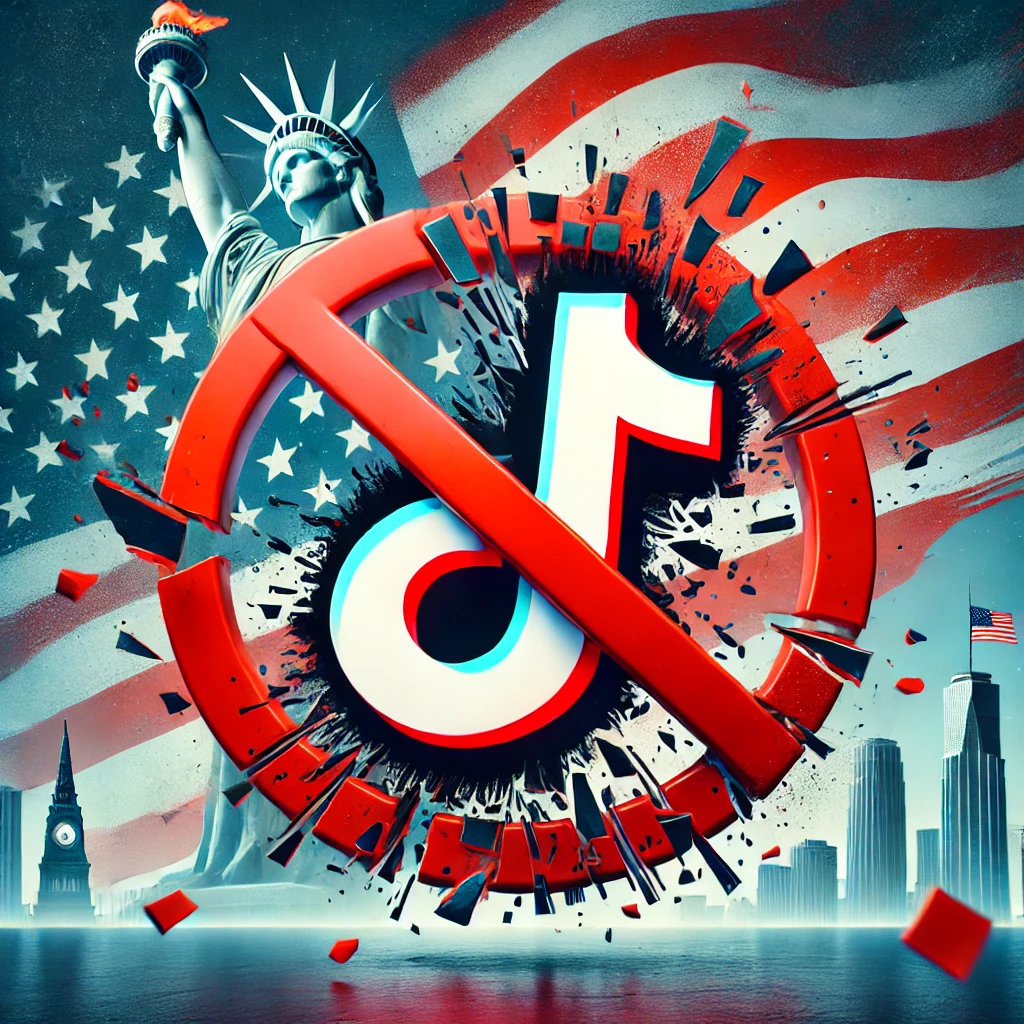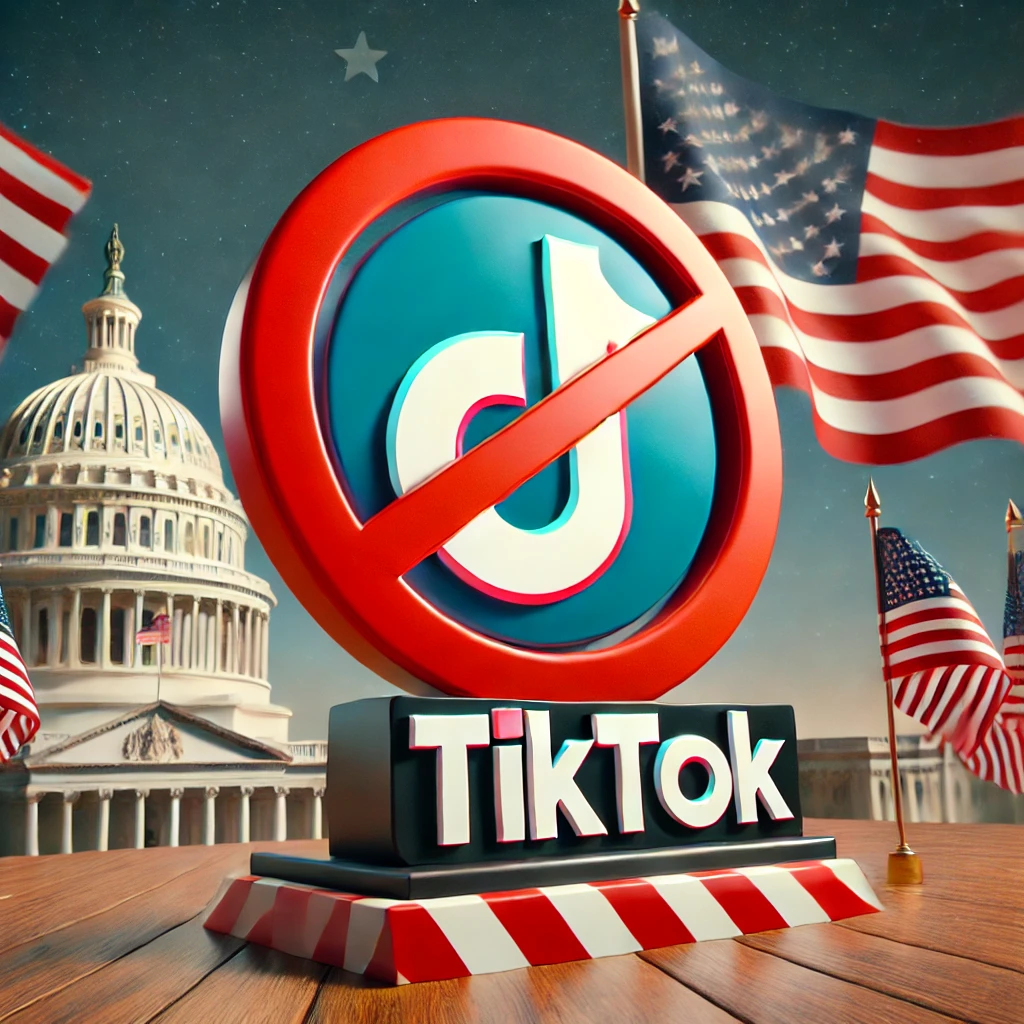TikTok Banned by the United States of America: What It Means for Users and the Future of Social Media
Tiktok banned by USA
Introduction
TikTok, a platform that revolutionized the way people create, share, and enjoy short videos, has been banned by the United States of America. With over 150 million users in the U.S., this decision has sparked a wave of discussions and debates, not just in America but worldwide.This blog delves into why TikTok was banned by the United States, its impact on users and content creators, the broader implications for social media platforms, and what lies ahead for the digital world.
This blog delves into why TikTok was banned by the United States, its impact on users and content creators, the broader implications for social media platforms, and what lies ahead for the digital world.
Why Was TikTok Banned in the United States?
The U.S. government has cited several reasons for the ban, all centered around concerns about national security and data privacy:
1. Data Privacy Risks
TikTok collects a significant amount of user data, including browsing history, location, device information, and more. Critics argue that because TikTok’s parent company, ByteDance, is based in China, this data could potentially be accessed by the Chinese government.
2. National Security Concerns
U.S. officials believe TikTok could be used for espionage, propaganda, or surveillance. The fear is that sensitive information about American users could be exploited for geopolitical gain.
3. Escalating Tensions with China
The ban is also a reflection of broader political and economic tensions between the U.S. and China. TikTok’s immense influence and popularity made it a high-profile target in this ongoing rivalry.

Impact of the Ban on TikTok Users and Creators
The ban has far-reaching consequences for millions of users, influencers, and businesses that rely on TikTok
1. For Regular Users
TikTok was a hub of entertainment and creativity for millions of Americans. Its ban means losing access to a beloved platform where people shared humor, educational content, and personal stories.
2. For Influencers and Creators
For many creators, TikTok was not just a platform but a livelihood. From brand partnerships to monetized content, TikTok provided income opportunities that are now at risk.
3. For Businesses and Marketers
Small businesses and brands leveraged TikTok’s algorithm to reach audiences in innovative ways. The ban disrupts marketing strategies, forcing businesses to pivot to other platforms like Instagram Reels or YouTube Shorts.
Reactions to the TikTok Ban
Public Backlash
The ban has been met with disappointment and frustration, especially among younger generations who dominate TikTok’s user base. Social media platforms are flooded with discussions about how this decision impacts freedom of expression.
TikTok’s Response
TikTok has strongly denied allegations of data misuse. The company claims it stores U.S. user data in American servers and has introduced transparency measures to address security concerns.
China’s Reaction
The Chinese government has called the U.S. ban politically motivated, accusing it of unfairly targeting Chinese technology companies.

Broader Implications for the Social Media Industry
The TikTok ban doesn’t just affect users—it sets a precedent for how governments might regulate social media platforms in the future.
1. A Warning for Other Apps
Other foreign-owned platforms, such as WeChat, could face similar scrutiny and restrictions in the U.S.
2. Rise of Domestic Alternatives
The ban gives U.S.-based platforms like Instagram, YouTube, and Snapchat an opportunity to attract TikTok’s audience and creators.
3. Global Conversations on Data Privacy
This decision highlights the need for stronger regulations and international cooperation on data sovereignty and user privacy.
The Political and Legal Battle
TikTok has challenged the ban in court, arguing that the U.S. government lacks evidence to justify its claims. Meanwhile, lawmakers are divided on the issue, with some viewing the ban as necessary for national security and others seeing it as an overreach.
This legal battle is being closely watched as it could shape future tech regulations in the U.S. and globally.
What’s Next for TikTok and Social Media Regulation?
The future of TikTok in the U.S. remains uncertain. Possible scenarios include:
1. A Compromise: TikTok could make further concessions, such as transferring ownership to a U.S.-based company.
2. A Permanent Ban: If legal challenges fail, TikTok could remain banned indefinitely in the U.S.
3. Increased Scrutiny for All Platforms: This ban could lead to stricter regulations for all social media platforms, emphasizing user data protection

.
Conclusion
The ban on TikTok by the United States of America is more than just a restriction on a popular app—it’s a turning point in how governments approach social media regulation. It raises critical questions about data privacy, national security, and the future of digital platforms.
For users and creators, this ban is a call to adapt, explore alternatives, and advocate for transparent and fair digital policies. As the debate continues, one thing is clear: the intersection of technology, politics, and global influence will shape the future of social media in profound ways.
Call to Action
Have thoughts about TikTok’s ban? Share your views in the comments below! Stay informed about the latest developments in tech and social media by subscribing to our newsletter.
